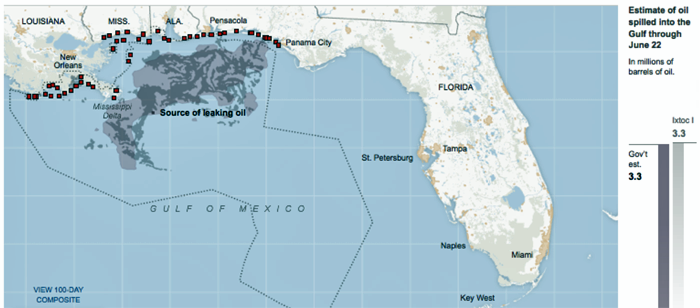
UMBC CSEE Colloquium
Human Sensor Networks for Improved Modeling
of Natural and Human-Caused Disasters
Oleg Aulov, Computer Science Ph.D. Student, UMBC
1:00pm Friday, 14 September 2012, ITE 227, UMBC
This talk will discuss the importance of different roles that social media can play in management, monitoring, modeling and mitigation of natural and human-caused disasters. We will present a novel approach that views social media data as a human sensor network. These data can serve as a low-cost augmentation to an observing system, which can be incorporated into geophysical models together with other scientific data such as satellite observations and sensor measurements. As a use case scenario, we analyze the Deepwater Horizon oil spill disaster. We gather the social media data that mention sightings of oil from Flickr, geolocate them, and use them as boundary forcings in the General NOAA Oil Modeling Environment (GNOME) software for oil spill predictions. We show how social media data can be incorporated into the GNOME model to obtain improved estimates of the model parameters such as rates of oil spill, couplings between surface winds and ocean currents, diffusion coefficient, and other model parameters. Other social media mining and citizen science projects performed by groups outside of UMBC, on air quality, earthquakes and the Fukushima disaster will also be summarized as related work.
Oleg Aulov received B.S. degree in mathematics from the University of Central Missouri, Warrensburg, MO, in 2004 and M.S. degree in Computer Science with a concentration in Computer Security and Information Assurance from George Washington University, Washington, DC, in 2006. He is currently working toward a Ph.D. degree in the Department of Computer Science and Electrical Engineering at University of Maryland, Baltimore County, Baltimore, MD. His topics of interest include social media mining, citizen science, machine learning, trust establishment and management, information assurance, and social engineering.
For more information and directions see http://bit.ly/UMBCtalks